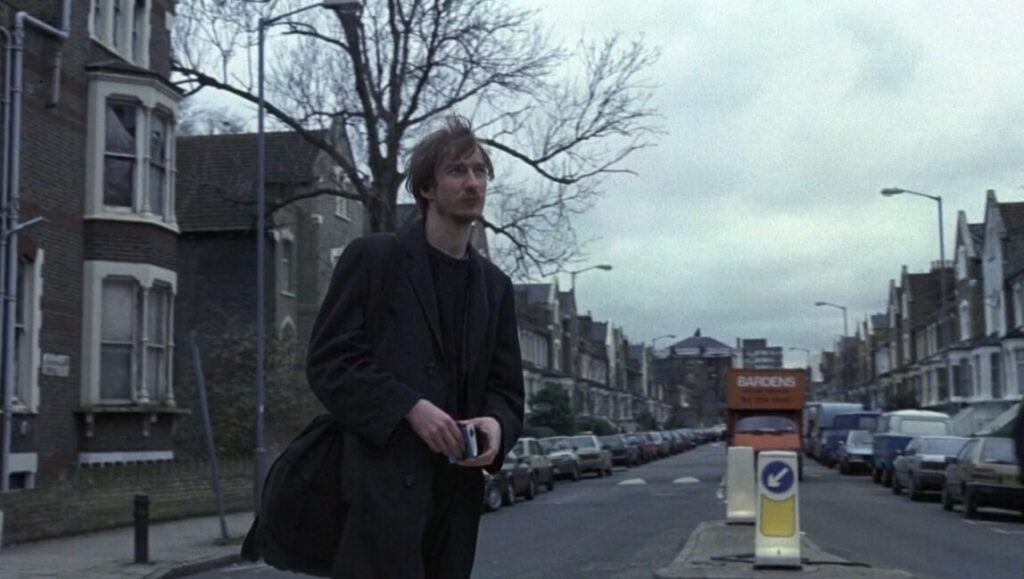In 1987, Margaret Thatcher made her infamous assertion that “there is no such thing as society” in order to espouse her doctrine of methodological individualism. Well, if the specter of Thatcher looms large over Naked, then it seems only natural that most of its characters should be atoms adrift — disengaged from the world around them. This very lack of community offers a stark contrast to the functional, interdependent relationships seen in many other Mike Leigh films, presenting an odyssey from the viewpoint of one such atomized drifter, who rejects the threads of friendship that he happens to stumble across. Indeed, the palpably spontaneous surface of Naked was drawn from the improvised interactions that cast members had with one another in rehearsals, often “with Mike following…like a voyeur.” This, in conjunction with the behaviors and attitudes garnered by the cast’s observations of real-life exemplars, gives rise to the idea of mimesis slipping into reality (and vice versa). We could even view Leigh’s notions of ‘the end of the world’ — which infiltrated his cinema more as the millennium drew to a close — as being a corollary of the grisly acrimony that arose from a heritage of ‘angry young men’ dramas. The sentiments of both reach a terminus in the character of Johnny (David Thewlis), a man every bit as self-destructive as one would expect from a harbinger of the apocalypse. Naked begins with our obdurate protagonist swiftly departing for London after he rapes a woman in a Manchester back-alley. Once in London, he seeks refuge with a former girlfriend before heading out again into the streets for a series of diverse encounters.
Here, he’s offered the chance of reconciliation, a proposal for a real future that nonetheless falls on deaf ears — it would only undermine the core of Naked were he to accept it anyway.
Johnny is the centrepiece here, his ragged countenance intruding upon every private sphere he manages to worm his way into, welcome or not. He rejects society at-large but not its people, seemingly finding some fleeting meaning in his vulgar and often salacious exchanges with others. The fluctuations between crudities and philosophical musings project an image of volatility, one delivered through staccato utterances and the voracious desire to transgress upon every woman he can exert some power over. A subplot involving the wealthier and much more sadistic character of Jeremy breaks through at irregular intervals, as an adjunctive point of comparison for Johnny’s behavior — both engage in abhorrent acts, but where Johnny’s are the product of an obstreperous psyche, Jeremy’s emerge from a place of callous petulance, and are the result of a genuine lust to see the pain of others (reminding us that no matter how reprehensible Johnny might be, there is probably someone worse). A good portion of Naked proceeds in this manner, meandering through shadowed streets and alleys until Johnny finds one of the many depressed souls of London to latch onto. Finally, the drama begins to coalesce upon his battered and bruised body. Here, he’s offered the chance of reconciliation, a proposal for a real future that nonetheless falls on deaf ears — it would only undermine the core of Naked were he to accept it anyway. The future is cancelled in his eyes. Thus, the final and most striking juxtaposition we’re given is his ardent nihilism clashing against the mettle of the women surrounding him. As our guide through the underworld, Johnny can never leave, but that doesn’t mean we can’t spot a few glimmers of life on the voyage down.
Part of Kicking the Canon – The Film Canon.


Comments are closed.